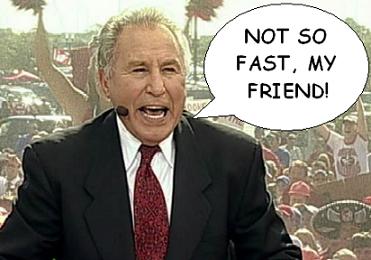We are well on pace to 1,000
views by the end of the year. Currently we have 414 on just 5 posts (and one of
those was the Welcome post).
Whether you are buying your
1st home or refinancing your 3rd investment property, there are things everyone
should know.
1.) What can I afford?
2.)
What fees are negotiable?
3.)
What does APR take into account?
4.)
When shopping do I just look at interest rate?
5.) What are the components of a mortgage payment?
6.)
What are my different loan options?
With
my "Monthly
Mortgage Insight" I
will go over these and many other things related to the industry and HOW IT
AFFECTS YOU!
Did
you know that someone making $50,000 with no debt can afford a $265,000 loan
(purchase price minus your down payment) in Upper
Arlington
How
could just a 30 minute drive up north provide you with $30,000 more of house?
That
direct answer is simple, real estate taxes. But Real Estate Taxes are only a portion of what goes into
figuring out how much of a house you can afford.
Currently,
you can do a conventional loan AS LONG AS your total monthly expenses total
less than 45% of your income, sounds pretty simple right?

We take your combined housing
expenses (Principal & Interest, Real Estate Taxes, Homeowner’s Insurance,
Condo/HOA Dues) and add those to other expenses incurred on a monthly basis.
This includes, but is not limited to: Student Loans, Car Payment, Current
Collections, Alimony, Child Support, Back Taxes, etc. We add all those up and
call those your LIABILITIES.
The problem arises that real
estate taxes can vary greatly depending on the location. Are you looking at a
condo or single family residence? What is your insurance agent going to charge
for homeowner’s insurance? Are your student loans currently in deferment? If
so, what are the payments going to be when they come out? How long do you have
to keep paying child support and alimony for? Do you know your credit score? A
739 vs a 740 can be a 1/8% difference in interest rate. A 740 vs 699 can be the
difference between having a conventional and government loan.
We then take your income,
simple right?
1.) If it’s a part-time job, you need to years of
history.
2.) If you’re hourly we take your hourly wage and
multiply by the average hours you work a week (weekly income), multiply by 52
(annual income), divide by 12 (monthly income).
3.) If you need commission or a bonus to qualify for
the loan, we take your currently salary (if you have one) then add the average
of your last two years commission or bonus. But if there is a large discrepancy
(i.e. you earned A LOT MORE or A LOT LESS), they can simply take the lower of
the two years.
4.) If you’re self-employed, we take two years
average income (less write-offs) as long as the income is comparable in amount.
As mentioned, if you write off items on your taxes, they can decrease your
qualifying income. Additionally, they may required reserves in savings because YOU ARE RISKY!
Coming January 2014
though you can only spend up to 43% of your income on total expenses, so get
those applications in soon!
A good rule of thumb is that if you can afford it
on a 15 year loan, it is very safe on a 30 year. Too often people try to max
out what they can afford. If you have a steadily increasing income, this is
fine. If you have items on your credit report that someone else is paying (i.e.
mom or dad is paying student loans), this is fine. There are very few times I
would recommend maxing out your allowable limit. AND THE
BIGGER THE LOAN THE MORE I GET
PAID! (So I must be speaking the truth).
Finally, I did not talk about FHA loans, because unless it is necessary (credit below 700, can't afford 5% down, etc) I try to avoid those. Recently the government has increased the AMOUNT of monthly Mortgage Insurance and LENGTH OF TIME you pay monthly Mortgage Insurance.
To receive a FREE and CONFIDENTIAL personal financial assessment, email me at davids@eqfin.com.
***I've saved people $1,000s over the years!
Also during Football Season I will post my leadpipe locks. Saints 44-Dolphins 24






